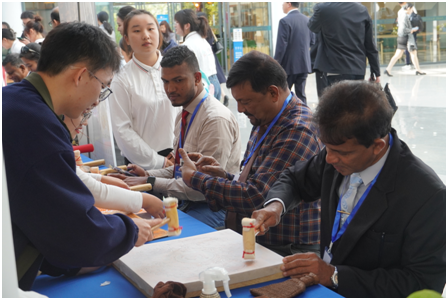
The 12th China-South Asia International Cultural Forum was held at Yunnan Minzu University on Nov 28. With the theme of “Peaceful Cooperation and Development for a Better Future", around 50 officials, experts, and scholars from China, Bangladesh, India, Nepal, Pakistan, and Sri Lanka attended, engaging in discussions on future collaboration.
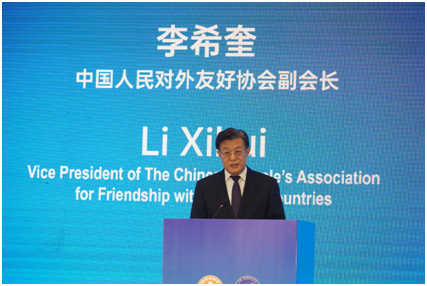
Li Xikui, vice president of the Chinese People’s Association for Friendship with Foreign Countries, said in his speech that China and South Asian countries are connected by mountains and seas, and their destinies are intertwined. This year marks the tenth anniversary of the Belt and Road Initiative. Over the past decade, China and South Asian countries have adhered to the principles of openness and inclusiveness, jointly constructed multi-level exchange platforms, and engaged in diverse cultural activities.
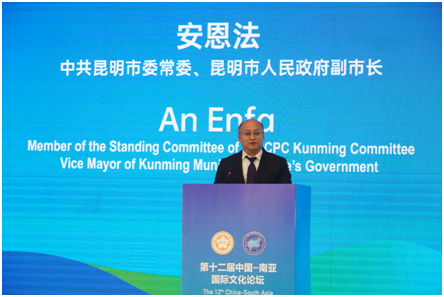
An Enfa, vice mayor of Kunming, said that the forum is a crucial platform for China and South Asian countries to engage in multilateral cultural exchanges, promote mutual learning and understanding, and enhance friendship among the people.
He welcomed friends from South Asian countries to visit and explore development opportunities in Kunming, sharing that the city has rolled out measures to strengthen its industrial base, enrich trade, promote tourism, and boost financial activities. Focusing on eight key industries, it is actively constructing a high-quality industrial chain system, and in the future, especially in cross-border international capacity cooperation, Kunming will be full of opportunities of immense potential and broad prospects.
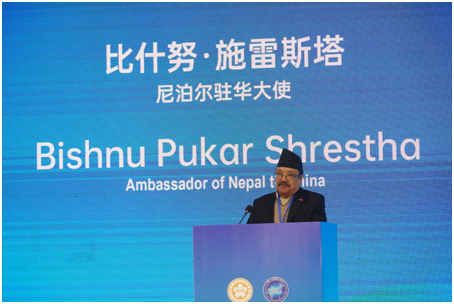
Bishnu Pukar Shrestha, Ambassador of Nepal to China, said that in recent years, the Belt and Road Initiative, along with the Trans-Himalayan Multi-Dimensional Connectivity Network, has expanded cultural exchanges and mutual learning. During a recent visit of the Rt. Hon’ble Prime Minister to China in Sept 2023, China and Nepal pledged to intensify exchanges and cooperation in education, science, technology, telecommunications, and culture. Both sides agreed to designate the year 2025 as "Nepal Visit Year" in China, with the aim of boosting tourism and fostering cultural exchange.
Nepal is actively promoting cultural exchanges and mutual learning through such initiatives as the establishment of Confucius Institutes. Cultural exchanges and mutual learning will continue to be the cornerstone of Nepal-China relations, he added.
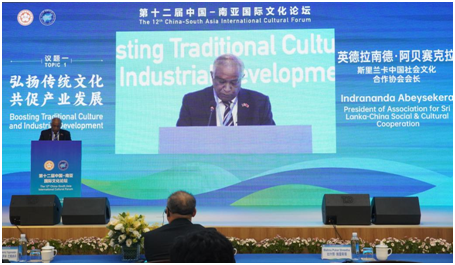
Indrananda Abeysekera, president of the Association for Sri Lanka-China Social & Cultural Cooperation, said that “China has taken proper steps to promote the development and progress of traditional industrial art by seeking talents to support, multi-sector cooperation and brand construction. Through the experience of China, we can create more innovative drives which really meet the development of the cultural creative industry. ”
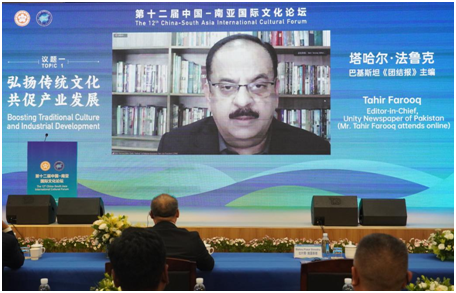
In a video speech, Tahir Farooq, the editor-in-chief of Unity Newspaper in Pakistan, said that “China's example illustrates that it is not only possible but beneficial to harmonize our reverence for tradition with our pursuit of progress. As we move forward, let us take inspiration from this model, striving to create societies that are not only economically prosperous but also culturally rich and diverse.”
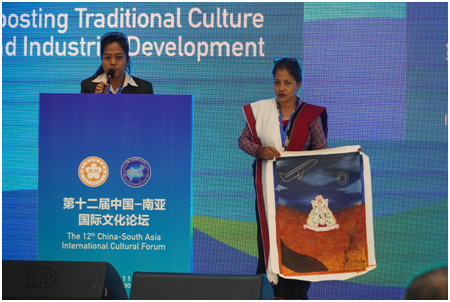
Shreya Hada Shrestha from the Nepal Nature Conservation Foundation said that “Promoting youth innovations and entrepreneurship is not just about investing in products or services; it's an investment in our collective future. By unlocking the potential of our youth, we unlock the potential of our society. Together, we can cultivate an environment where innovation thrives, and our youth can boldly shape a brighter tomorrow.”
Experts and representatives from over ten institutions, including Yunnan University, Yunnan Minzu University, the China Association of Sri Lanka, and Pakistan's Unity Newspaper, attended the conference. The guests shared their views on promoting traditional culture in the region, international cultural exchange, cultural industry development, international cooperation, and youth innovation and entrepreneurship. They offered expectations and suggestions based on the current situation.